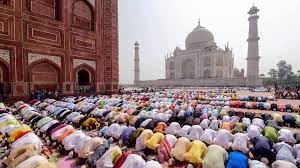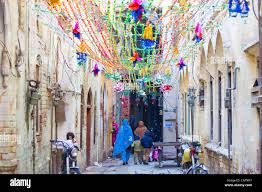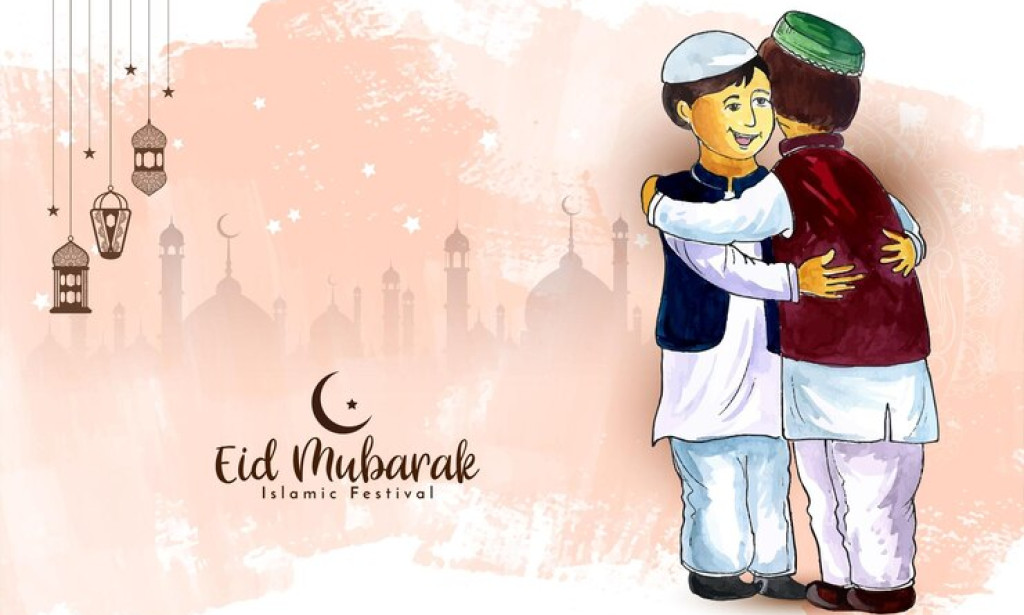How Muslims Celebrate Eid ul-Fitr Around the World

Eid al-Fitr, which comes after Ramadan, is one of the most significant religious holidays observed by Muslims around the world. It marks the end of Ramadan, the holy month of fasting, and is a time of joy, gratitude, and community.
Eid ul-Fitr is celebrated on the 1st of Shawwal. Eid is an Arabic word which means joy, happiness, celebration. Eid is a reward from Allah.
This festive occasion is extremely important in the Islamic calendar and is commemorated with great enthusiasm and togetherness across cultures and nationalities.
Let's explore how Muslims celebrate this auspicious occasion around the globe.
Story behind the Eid ul fitr
Eid-ul-Fitr celebrates the completion of Ramadan, Islam's holy month of fasting. It is a festival marking the end of a month-long fast from sunrise to sunset. The event begins with the sighting of the new moon and is a time for rejoicing, eating, and thanking Allah for the fortitude and endurance shown during Ramadan. It is also a time for Muslims to exhibit compassion and kindness to those in need by making charitable donations. Traditionally, it begins with a special prayer at mosques, followed by social feasts and gatherings of family and friends.
Eid al-Fitr Traditions
Significance
Eid holds significant religious and cultural importance in the Islamic faith. Here are some key aspects of its significance:
Morning Prayers (Salat al-Eid)
On the morning of Eid al-Fitr, Muslims gather in mosques or open spaces for special prayers known as Salat al-Eid. Muslims assemble in great numbers to pray, seeking blessings and forgiveness. These prayers are typically performed in congregation and are an essential part of the Eid festivities.
Celebration of Spiritual Growth
Eid-ul-Fitr commemorates the completion of Ramadan, a month of fasting, prayer, and self-reflection. It's time to celebrate the spiritual growth achieved during this period of heightened devotion.
Gratitude and Thankfulness
Eid is an occasion for Muslims to express gratitude to Allah for the strength and perseverance to observe fasting and other acts of worship during Ramadan.
Unity and Brotherhood Family Gatherings and Feasting
Eid brings together Muslims from diverse backgrounds, fostering a sense of unity, brotherhood, and community spirit. Delicious food is prepared, including traditional dishes specific to each culture, and shared with loved ones and neighbors.
It's a time for forgiveness, reconciliation, and the strengthening of bonds with family, friends, and neighbors.
Generosity and Charity Zakat al-Fitr
Before the Eid prayers, Muslims are required to give Zakat al-Fitr, a form of charity aimed at helping the less fortunate. Muslims are encouraged to engage in acts of charity and kindness, especially during Eid-ul-Fitr, by giving to those in need. This practice, known as Zakat-ul-Fitr, ensures that everyone can partake in the joyous festivities. This donation is typically given in the form of food or money and is intended to ensure that everyone can enjoy the festivities of Eid.
Exchanging gifts
It is common for Muslims to exchange gifts on Eid al-Fitr as a gesture of love and goodwill. Gifts may include clothing, sweets, or other thoughtful items, and the act of giving is considered a form of charity.
Meeting relatives and friends
Eid al-Fitr is also a time for visiting relatives and friends, strengthening bonds, and fostering a sense of community. People often dress in their finest attire and make visits to the homes of loved ones to exchange greetings and well-wishes.
Decorating Homes and Streets
In many Muslim-majority countries, homes and streets are adorned with festive decorations in preparation for Eid al-Fitr. Colourful lights, banners, and artwork create a festive atmosphere, signalling the joyous occasion to all.

Remembrance of Prophet Muhammad (S.A.W.)
Eid is also an occasion to remember and honor the teachings and example of Prophet Muhammad (peace be upon him), who emphasized the importance of compassion, generosity, and unity among believers.
Overall, Eid is a joyous and spiritually uplifting occasion that reinforces core Islamic values and strengthens the bonds of community and faith.
Special dishes in Eid UL fitr
Sheer khurma is a traditional dessert enjoyed during Eid ul-Fitr, along with various other sweets like baklava, gulab jamun, and barfi. It's a delightful way to celebrate the end of Ramadan with family and friends.
Eid al-Fitr Celebrations Around the World
1. Indonesia
In Indonesia, Eid al-Fitr, locally known as Lebaran, is celebrated with great enthusiasm. Families gather for prayers at mosques, followed by feasting on traditional dishes such as ketupat (rice cakes) and rendang (spicy beef).
2. Egypt
In Egypt, Eid al-Fitr is known as Eid el-Fitr or Eid Saeed. The streets are filled with colorful decorations, and families enjoy traditional dishes like ful medames (stewed fava beans) and kahk (sweet pastries).
3. Turkey
In Turkey, Eid al-Fitr is called Bayram and is celebrated with three days of festivities. Families visit the graves of their loved ones, offer prayers, and share meals together, including baklava and other sweet treats.
4. United States
Muslims in the United States celebrate Eid al-Fitr with prayers at mosques, followed by communal meals and gatherings. Many cities host Eid festivals, featuring food stalls, bazaars, and entertainment for the whole family.
5. Pakistan
In Pakistan, Eid al-Fitr, known as Chaand Raat, is a time of joy and celebration. Families shop for new clothes, decorate their homes, and prepare traditional dishes like biryani and sheer khurma (vermicelli pudding).
Conclusion
Eid al-Fitr is a time of immense joy, gratitude, and unity for Muslims around the world. From the bustling streets of Indonesia to the quiet neighborhoods of the United States, the spirit of Eid transcends borders and brings people together in celebration. As we bid farewell to Ramadan and welcome the new month, let us cherish the memories of Eid and look forward to the blessings of the year ahead.



You must be logged in to post a comment.